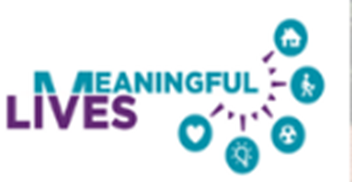
Essex County Council (ECC) began the Meaningful Life Ageing Well project in September 2019, recognising that people with Learning Disability (LD) die earlier than the general population (average age of death is 60 years in Southend Essex and Thurrock (SET)), and that they often experience early frailty. As our local population ages, their needs will change and there may come a time when their primary need is no longer Learning Disability related, instead, it is age-related.
In 2021 a team of Social Workers were commissioned by ECC to undertake reviews with people with LD who were also seen to be ageing. In order to help them understand the issues that people with LD face as they age, a variety of tools, information, alongside links to relevant websites, has been put together to form a Toolkit for Ageing Well with an LD.
In addition to this, 2-day Ageing Well training was offered out to the Provider Market to upskill and raise awareness of how they may need to change and adapt the way people are supported as they age, preparing Providers to work towards becoming ECC accredited Ageing Well Providers.
Contact jenny.peckham@essex.gov.uk for information on future training sessions for Ageing Well.
The intention of ECC’s focus on ageing well, is to improve the quality of life for people with LD and to delay or reduce the development of age-related support needs. It is very much a joined-up approach with Health who have contributed to the development of the Toolkit. This will ensure that as the person with a Learning Disability progresses towards ageing, they are well supported to have a good life that is both fulfilling and enriched
The Provider version of the Toolkit has been put together to help you, as Service Providers, to ensure that everything is in place for the people you support, to age well.
Remember that ageing with a Learning Disability can mean that the person ages much earlier or even later, than others in the population. Don’t let someone’s chronological age obscure your view, instead consider what is happening developmentally to identify signs and symptoms of ageing to indicate whether you need to be following the Ageing Well pathway in your delivery of support.
It is ECC’s intention to have a list of accredited Service Providers who will be expected to provide evidence, against the list of agreed standards, of their competence to effectively support people with Learning Disability, as they age. This Toolkit will help your organisation to achieve that goal.

